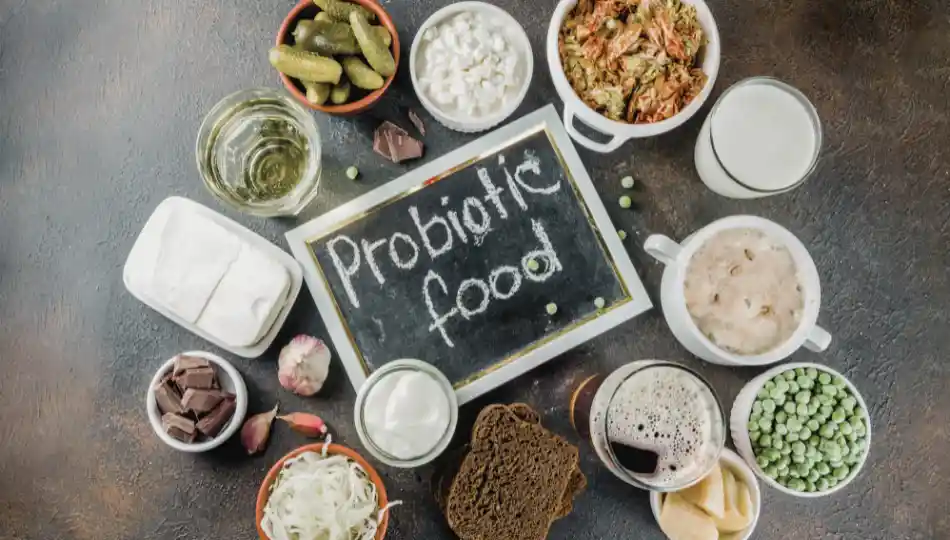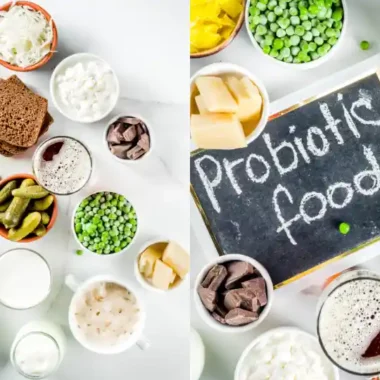Introduction
Probiotics have gained significant popularity recently due to their potential to improve gut health and overall well-being. These live microorganisms are known for their positive impact on our digestive system and have many benefits extending beyond gut health. This comprehensive guide will delve into probiotics, exploring their types, benefits, usage, and much more.
About Probiotics
Probiotics are live bacteria and yeasts that are good for your health, especially your digestive system. They are often called “good” or “friendly” bacteria because they help maintain a balanced microbial environment in your gut. These microorganisms can be found in various foods and supplements.
Types of Probiotics
There are several types of probiotics, but the most common ones include:
a. Lactobacillus: This is one of the most well-known probiotic strains found in yogurt and other fermented foods. Lactobacillus helps break down lactose and supports the growth of beneficial bacteria in the intestines.
b. Bifidobacterium: Bifidobacterium is another crucial probiotic strain often found in dairy products. It aids in digestion and contributes to a healthy balance of gut bacteria.
c. Saccharomyces boulardii: This yeast-based probiotic can help with digestive issues, including diarrhea and irritable bowel syndrome (IBS).
Benefits of Probiotics
a. Improved Digestive Health: Probiotics help maintain a balanced gut microbiome, which can alleviate digestive problems such as diarrhoea, constipation, and irritable bowel syndrome (IBS).
b. Enhanced Immune Function: A healthy gut is closely linked to a robust immune system. Probiotics boost your body’s defences against infections and illnesses.
c. Mood Regulation: Emerging research suggests a connection between gut health and mental well-being. Probiotics may play a role in reducing symptoms of anxiety and depression.
d. Weight Management: Some studies have shown that certain probiotics can help lose weight and maintain a healthy weight.
e. Skin Health: Probiotics may contribute to clearer skin by reducing inflammation and promoting a healthy balance of skin microorganisms.
Usage of Probiotics
Probiotics can be consumed in various forms:
a. Dietary Sources: Fermented foods like yogurt, kefir, sauerkraut, and kimchi naturally contain probiotics.
b. Probiotic Supplements: These are available in various forms, such as capsules, tablets, and powders. They offer a convenient way to incorporate probiotics into your daily routine.
c. Probiotic Drinks: Some beverages are fortified with probiotics, providing a refreshing way to support your gut health.
d. Topical Applications: Probiotics are also used in skin care products to promote a healthy complexion.
Precautions and Considerations
While probiotics offer numerous benefits, it’s essential to exercise caution when using them, particularly if you have underlying health conditions or are immunocompromised. Consult with a healthcare professional before starting any probiotic regimen.
Conclusion
Probiotics are a fascinating and evolving field of study in health and wellness. Their potential to support digestive health, boost the immune system, and even influence mood and weight management makes them valuable to a healthy lifestyle. Whether you choose to obtain them through dietary sources or supplements, it’s essential to prioritize a balanced diet and consult with a healthcare provider to maximize the benefits of probiotics. Start exploring the world of probiotics and discover the positive impact they can have on your overall well-being.











